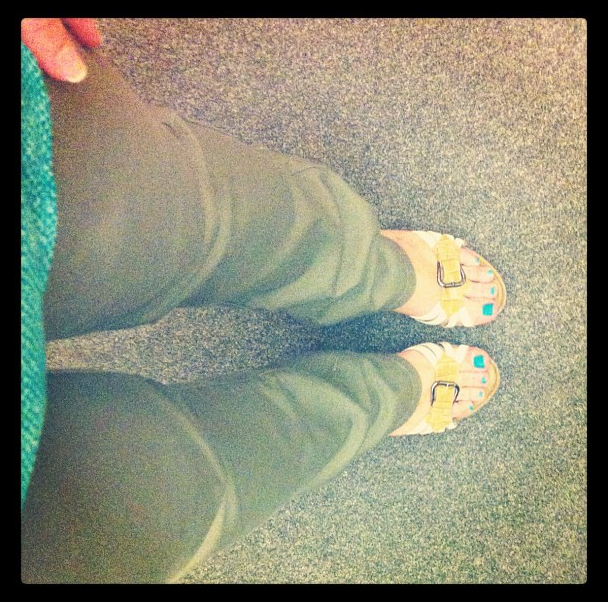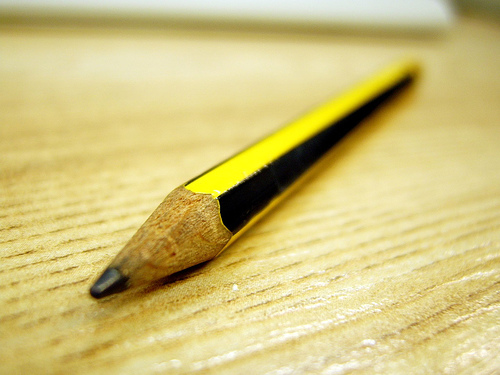 We're fond of tossing out Fitzgerald quotes like candy at my house, and the title above is a favorite, but I swear, it didn't occur to me until someone pointed it out this past week, on the day of the summer solstice itself, that the problem with summer solstices is that from here on out, the days shrink rather than extend, like summer is over before it's ever even begun.
Tonight I was reminded of the NYC blackout of August 2003. Have I ever told you that story? Sometimes it feels like a perfect party trick, like this little ticket stub I keep in my pocket and pull out whenever someone mentions their subway being stuck or how hot the afternoon has grown. "I was at the big game," I can say.
We're fond of tossing out Fitzgerald quotes like candy at my house, and the title above is a favorite, but I swear, it didn't occur to me until someone pointed it out this past week, on the day of the summer solstice itself, that the problem with summer solstices is that from here on out, the days shrink rather than extend, like summer is over before it's ever even begun.
Tonight I was reminded of the NYC blackout of August 2003. Have I ever told you that story? Sometimes it feels like a perfect party trick, like this little ticket stub I keep in my pocket and pull out whenever someone mentions their subway being stuck or how hot the afternoon has grown. "I was at the big game," I can say.
I had taken the day off work and my sister and her friend were visiting. We had big plans for the day and tickets to the Indigo Girls at Central Park Summer Stage that evening. We'd browsed through the Village and then hopped on a train (I want to say it was ACE, but that's just me filling in the blanks) and it was hot, a hot hot heat that left our faces moist as we waited underground. K., my sister's friend, was one of those girls who was highly particular about her face and, quite simply, never touched it. Like, hands on face was off-limits, de facto. (The bitch had beautiful skin.)
So there I stood waiting for a train, wiping sweat off my upper lip and feeling judged by her for doing so, when finally one came, and it was crowded but cool, and it was like the whole platform heaved with relief at the change in temperature.
And then, ten minutes into the train ride, we stopped.
The short version: there was a blackout, city-wide; after 90 minutes we finally saw a conductor who informed us we'd be evacuating; it took another 90 minutes for that to actually happen, for us to stomp through underground tunnels, mice at our feet, hands on cool underground walls that I shudder to think about now, for a firefighter to pull me from a manhole in midtown as people snapped pictures.
I couldn't get home that night -- all the tunnels and bridges were closed to traffic. So we drank in the street -- leave it to New York to turn the day into a party -- and we watched businessmen in suits direct traffic and we assumed the concert had been canceled and we ended up back in my office in Times Square, which was running on a generator, and we played games and used the phone and ate free food from the cafeteria and slept on borrowed couches in executives' offices. Somehow the text I had sent while still stuck underground had gotten through, hours later, telling my mom we were okay, since someone had whispered the word "terrorist" while we were still in the dark train waiting to find out what had happened, and it hung around my brain like a lingering smell of dinner.
We barely slept, and in the hot, gray early morning we hopped on a bus; they were parked on the corners outside of Port Authority, which was still technically closed, and we were just hoping to get through the tunnel back to the Jersey side, since the benefits of a Hoboken apartment include the fact that you are mere steps away from both the Lincoln and Holland. It turns out the buses were all just kind of meandering, shipping people for free over the Hudson and then dumping them in various mall parking lots. So when we got on and got through the Lincoln, I pushed the yellow rope to indicate a stop and the driver's head jerked up.
"Does someone want to get off here?" He called back.
"Yes," I shouted, hoping that was an okay answer.
"Why?" He wondered.
"Um, I live here," I confessed.
"Lucky," my seat neighbor said.
We walked the half a mile back to my apartment, in the same clothes, needing toothbrushes and deodorant but overall, not too much worse for the wear, and discovered my apartment had never even lost power.
It was a free day off work, I remember. And somewhere, people have pictures of me being hoisted out of a manhole on 57th Street, probably aching to wipe the sweat off my upper lip.
 "America will soon belong to the men and women — white and black and Latino and Asian, Christian and Jew and Muslim and atheist, gay and straight — who can comfortably walk into a room and accept with real comfort the sensation that they are in a world of certain difference, that there are no real majorities, only pluralities and coalitions." -- David Simon
"America will soon belong to the men and women — white and black and Latino and Asian, Christian and Jew and Muslim and atheist, gay and straight — who can comfortably walk into a room and accept with real comfort the sensation that they are in a world of certain difference, that there are no real majorities, only pluralities and coalitions." -- David Simon









